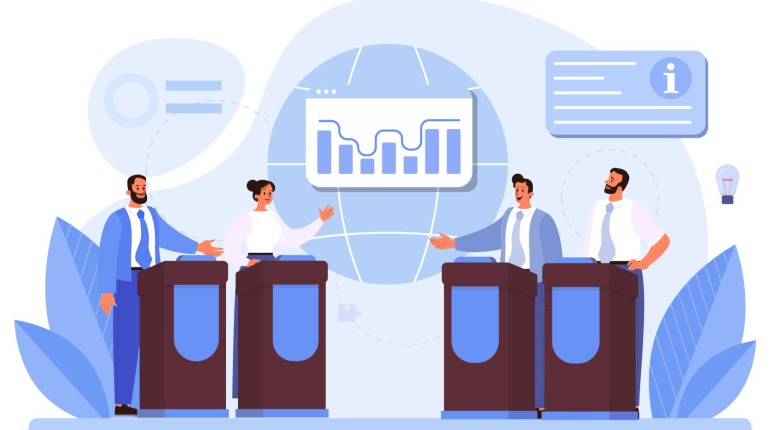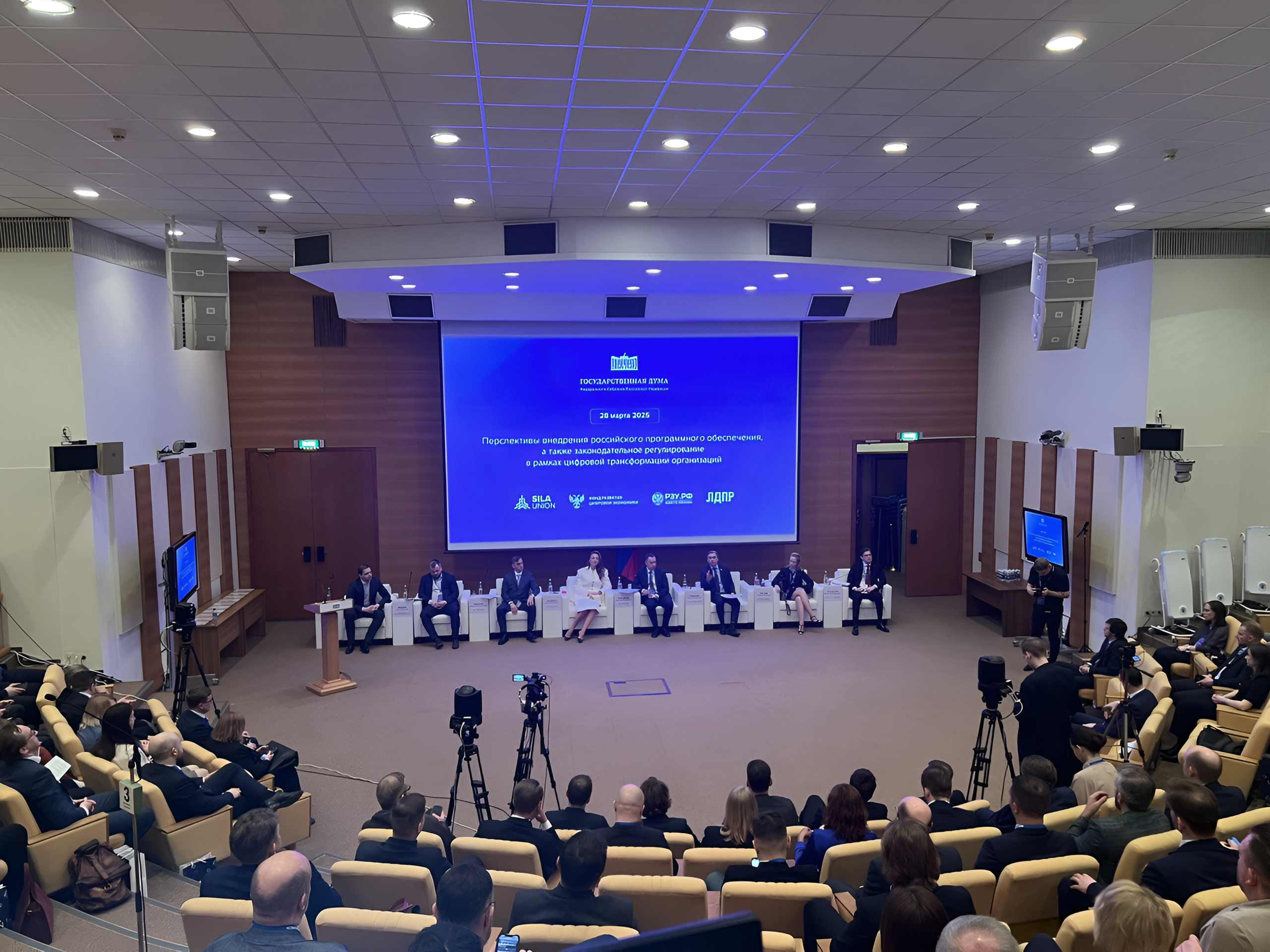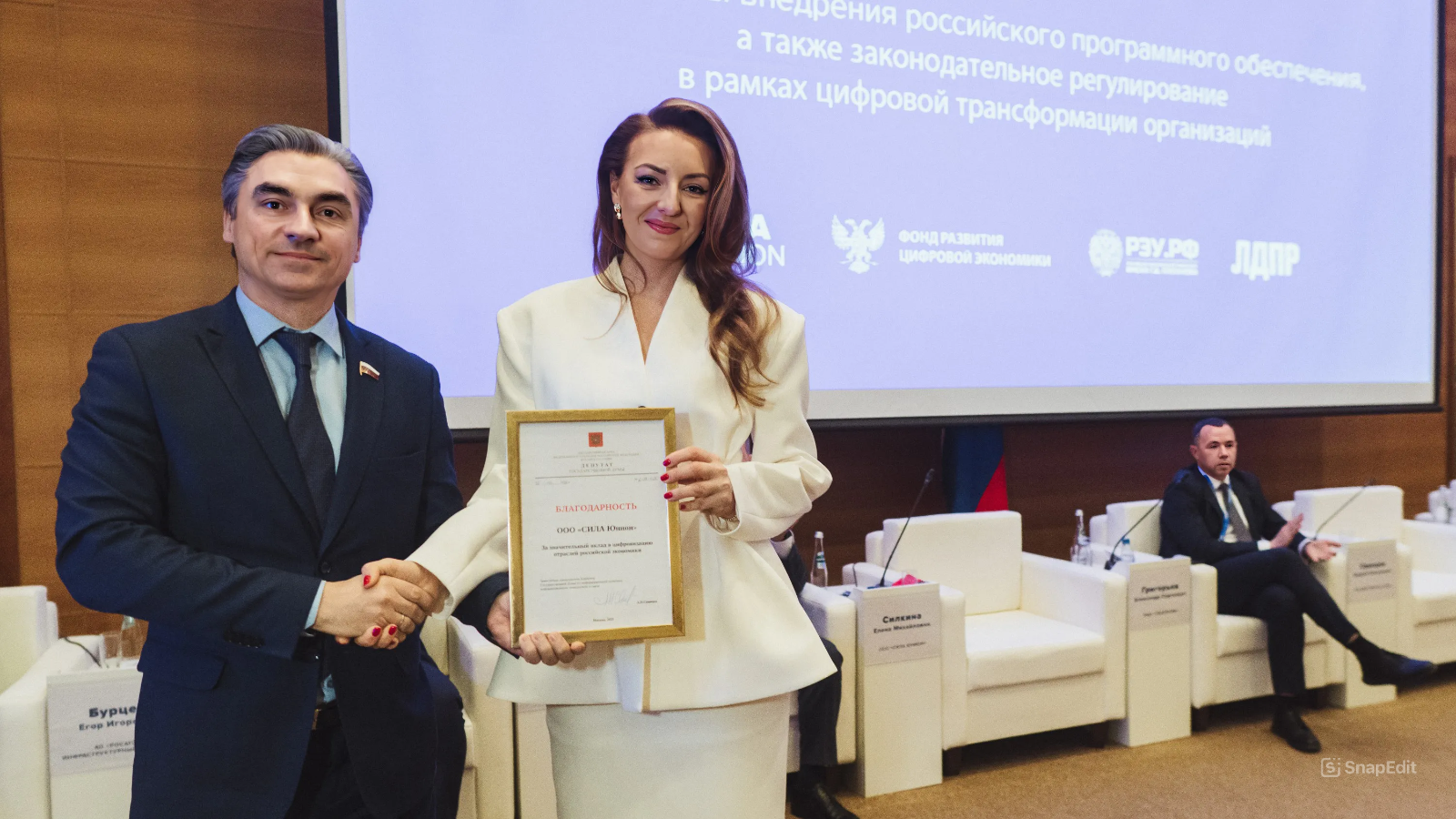
SILA Union at the Forefront of Import Substitution: How Government and Business Are Shaping Technological Sovereignty
Today, digital transformation has become a key factor in the development of each industry and the national economy as a whole. Given global shifts and the acceleration of technological processes, discussions around digitalization prospects have become especially relevant.
In this context, a meeting was held between business and government representatives, where the results of the country's digitalization over the past five years were reviewed, current challenges and needs were outlined, and solutions and support measures were developed. SILA Union, as an invited expert vendor, presented its best solution and proposed procedures for optimizing enterprise digitalization based on the experience of industry leaders.
Agenda of the meeting
Presidential Decree No. 474 defined digital transformation of the Russian economy as a key development goal. Domestic technologies are gaining momentum, and Russian enterprises are driving digitalization in the economy. Amid global changes and challenges, import substitution is becoming one of the top priorities of internal state policy.
Participants in the roundtable “Prospects for Implementing Russian Software and Legislative Regulation within the Framework of Organizational Digital Transformation” were tasked with uniting the experiences of enterprises from various industries, the expectations and goals of the state, the current level of skilled personnel training, the capabilities of Russian software, and the specifics of digital initiatives from nonprofit organizations.
Key discussion topics included:
The state of digitalization in strategically important sectors of the economy.
Practices of implementing Russian software solutions and their competitiveness.
Government support for developers and regulatory issues.
Import substitution and ensuring the country's digital sovereignty.

Who participated?
Over 200 representatives of government bodies, businesses, universities, leading domestic software developers, and digital transformation experts participated in the open dialogue. The event was initiated by the State Duma Committee on Information Policy, Technologies, and Communications. The roundtable was moderated by Andrei Svintsov, Deputy Chairman of the State Duma Committee on Information Policy, Information Technologies, and Communications.
System-forming enterprises shared the results of their largest projects on import substitution and digital transformation: PJSC Yakovlev, PJSC Gazprom, JSC Rosatom. Among the invited participants were giants from various sectors, including PJSC LUKOIL, Rostec State Corporation, PJSC Sberbank, PJSC Magnit, JSC Russian Railways, JSC Mosenergosbyt, PJSC Inter RAO, FSUE GosTech, and other key companies. Representing IT solutions was SILA Union, a leading software developer for process management and digital transformation projects. The Digital Economy Development Fund shared its digital initiatives and projects. The current state of education was actively discussed by Bauman Moscow State Technical University, Moscow State University, and Plekhanov Russian University of Economics. Among the nonprofit organizations present were ANO “My Country,” the Moscow City Department of Information Technologies, the Digital Economy Development Fund, and many others.
What did the experts discuss?
Among the invited speakers was Elena Silkina, Managing Partner at SILA Union, who shared the company’s experience in developing and implementing innovative business solutions. Elena identified key issues in digital transformation and emphasized that taking a step toward import substitution is crucial for creating effective technological sovereignty. Today, SILA Union software is one of the only products in its class that is independent of foreign components.
“Digital transformation is a key task for Russia's development, especially from the perspective of security and import substitution. Successful implementation of such projects requires a comprehensive approach, including the creation of a digital twin of the organization, which allows for the analysis of current business processes and IT systems and the identification of ways to optimize them. It is important to transition to domestic software to ensure data security and avoid dependence on foreign components.”
Andrei Svintsov, Deputy Chairman of the State Duma Committee on Information Policy, Information Technologies, and Communications:
“Digital transformation opens up huge opportunities to improve operations across various sectors, including small and medium-sized businesses, through tools such as marketplaces and ‘Chestny Znak’. It is important that we continue moving toward data synchronization and the creation of effective mechanisms that will help improve the quality of goods and services, as well as increase transparency and trust in digital platforms. These steps will not only simplify administration but also create a more stable and secure business environment.”
Egor Burtsev, Director of the Transformation Project Office, JSC Rosatom Infrastructure Solutions:
“Rosatom is actively implementing a transformation strategy based on lean principles, automation, and working with personnel, integrating new technologies and optimizing processes. Digital transformation is impossible without the use of domestic software, which ensures both security and the long-term development of our industry in the face of global challenges.”
Alexander Grigoriev, Head of Department, PJSC Gazprom:
“Digital transformation in Russian companies like Gazprom is actively progressing, combining import substitution with the implementation of domestic solutions. Successful projects, such as the transition to the SILA Union platform, demonstrate the feasibility of fully replacing foreign software products while maintaining functionality and user convenience. At the same time, particular attention is paid to staff training, ecosystem development, and the integration of new technologies, including support for military veterans in adapting to the IT field.”
Alexander Krasnov, CIO, PJSC Yakovlev:
“There is a need to create standard process models for enterprises, industry classifiers, and unified standards for digitalization. In this context, the expert community formed by SILA Union is especially important and could play a key role in developing such solutions. It is also worth creating a single platform for interaction between business, government, and universities, where requests can be formulated and performers found.”
Mikhail Nachevsky, Head of Digital Transformation, Plekhanov Russian University of Economics:
“One successful collaboration was the integration of the SILA Union system into the curriculum of the Higher School of Cyber Technologies, Mathematics, and Statistics at our university. We are developing joint projects on expert evaluation and curriculum transformation, organizing internships and work placements, and creating and publishing academic articles and teaching materials.”
Lyudmila Gontar, Head of the Digital Economy Development Fund:
“Digital transformation is not just about artificial intelligence or digital platforms, but about a systematic approach to data collection and processing. The key issue is data intake. Without synchronization and a clear structure, digital ecosystems cannot function effectively. It is important to consider innovative technologies, including quantum developments, unmanned systems, and secure communications, and to unite the efforts of science, business, and government. I am confident that SILA Union will support us in these initiatives to build a sustainable and transparent data economy.”
Main ideas and conclusions
Import substitution as a driver of development. Russian companies are demonstrating a high level of competence in creating software products capable of replacing and surpassing foreign counterparts. It is important not only to develop technologies but also to adapt them to the real needs of business and the specifics of the Russian economy.
A comprehensive approach to digitalization. Technology implementation is more than just replacing one software product with another. Achieving efficiency and transparency only results from deep transformation of all processes, and the realization of changes is only possible based on the most advanced solutions, such as SILA Union.
Business–government interaction. A successful transition to domestic solutions requires state support, including regulation, subsidies, and the development of educational initiatives.
The role of leading developers. Companies like SILA Union make a significant contribution to digital transformation by offering advanced digital solutions for business, a broad set of tools, and the ability to adapt to any industry or task. Most importantly, they enable the consolidation of all enterprise processes into a single environment for further optimization and a significant increase in efficiency.
Conclusion of the meeting
The roundtable served as an important platform for dialogue between business and government. The results of joint work confirm Russia's strong potential in developing digital technologies and creating a powerful, independent ecosystem. Modern business software, continuously refined by SILA Union, already proves that domestic solutions are setting new standards of quality and efficiency.
The State Duma Committee on Information Policy, Technologies, and Communications expressed gratitude for the significant contribution to the digitalization of Russian economic sectors and presented honorary awards to: LLC SILA Union, PJSC Gazprom, PJSC Yakovlev, LLC Gazprom Inform, JSC Russian Helicopters, PJSC LUKOIL, JSC Rosatom Infrastructure Solutions, Plekhanov Russian University of Economics, Bauman Moscow State Technical University, Lomonosov Moscow State University, and JSC Rosenergoatom Concern.






